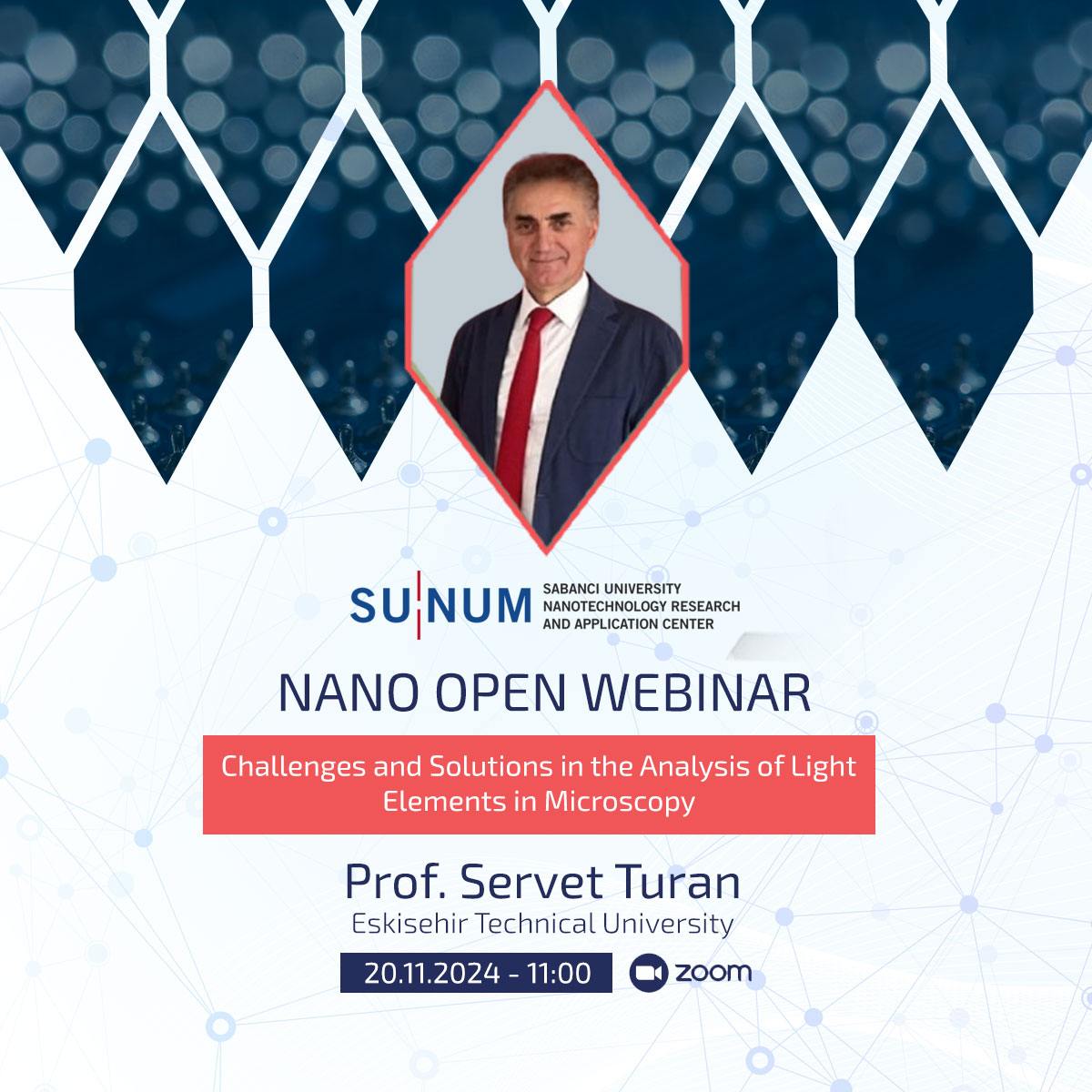-

- About Us
- Research
- People
- Infrastructure
- Projects
- Partnerships
- Our Platforms
- Publications
- Training / Event
- mySU
- Online Reservation
- sunum@sabanciuniv.edu
- SUNUM e-Store
- 360° SUNUM
- Intranet

Prof. Servet Turan, from Eskişehir Technical University, President of the Turkish Electron Microscopy Society, R&D Coordinator and Chairman of the Board of the Ceramic Research Center, will be the guest at the Nano Open Webinar on Wednesday, November 20, 2024 between 11.00-12.00 at Zoom.
Prof. Servet Turan, will talk about challenges and solutions in the analysis of light elements in microscopy.
To register for the Nano Open Webinar, which will be held on Zoom on November 20, 2024, at 11:00: otolab.sabanciuniv.edu
About Prof. Servet Turan
Prof. Servet Turan graduated from Istanbul Technical University in 1988 and completed his master's degree at the University of Leeds in 1990. Prof. Turan received his PhD from the University of Cambridge in 1995 with a Ministry of Education scholarship. After postdoctoral research at Cambridge, he became an Associate Professor in 1999 and a Professor in 2004. Prof. Turan has received over 30 scientific and technological awards, including the TÜBİTAK Incentive Award and several Young Microscopists competition prizes. Turan, published more than 160 articles in international journals, holds over 5 joint patents. Turan, worked as a manager, researcher and consultant in more than 100 national and international projects, and wrote international book chapters and edited national and international conference proceedings.
Prof. Servet Turan has held various administrative roles, such as Vice Rector for Research and Reasearch and Graduate Processes Director at Eskişehir Technical University, Director of Advanced Technologies Research Center, and Head of the Department of Materials Science and Engineering. He also served on the advisory boards of TÜBİTAK BİDEB, the Turkish Ceramics Society, and the Turkish Electron Microscopy Society.
Currently, Prof. Turan is a Board Member of the European Microscopy Society and Chairman of the Turkish Electron Microscopy Society. Since 2022, he has been R&D Coordinator and Chairman of the Board at Ceramic Research Center Inc. His recent research focuses on UN Sustainable Development Goals, including energy storage (Lithium Ion Batteries), energy production (Thermoelectric Materials), circular economy through waste evaluation, and advanced ceramics based on silicon and boron. He leads the STAR research group with around 30 students and researchers.
